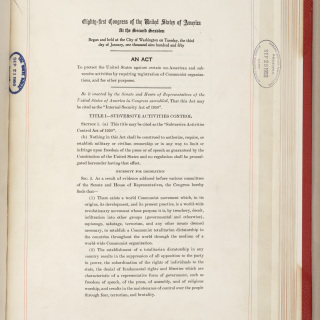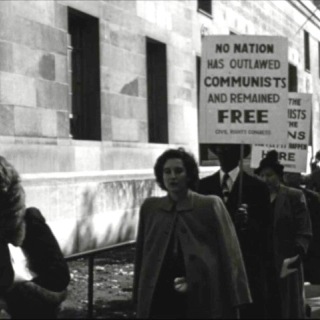Internal Security Act 1950
President Truman called it “the greatest danger to freedom of speech, press, and assembly since the Alien and Sedition Laws of 1798.” The Internal Security Act was created “to protect the United States against certain un-American and subversive activities by requiring registration of Communist organizations, and for other purposes.” Any group that refused to register would be fined “$10,000 for every day that it defied the law.”
Congress quickly overruled President Truman’s veto of this “mockery of the Bill of Rights.” The Act, which denied citizenship to Communists, was used to revoke entertainer and civil rights activist Paul Robeson’s passport. In 1993, the Supreme Court ruled that sections of the act violated the First Amendment. Other portions of the act are still in effect.

